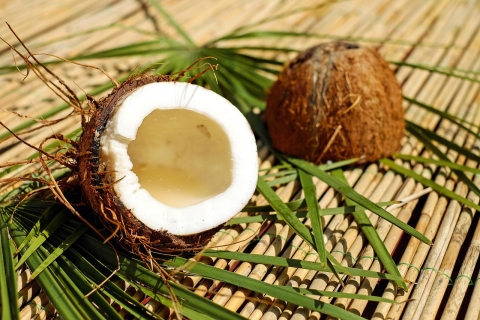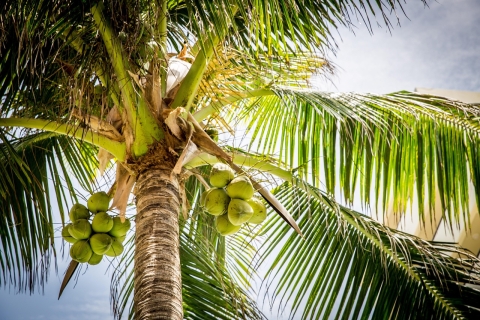
Main navigation - Library
Secondary Menu - Library
Secondary menu
Search suggestions update instantly to match the search query.
Happy World Coconut Day!

It sometimes feels as if the days of our lives are themselves becoming commoditised, the calendar becoming a bill board of changing adverts calling our attention to different needs. To an extent, this is true - we are invited to look more closely at the ongoing and endemic social violence against people of the global majority during Black History Month because it is easier to command attention and corral efforts to greater effect if a movement has a focal point - a day, week or month when it is celebrated.
Many of these feel necessary and useful. The lived experiences of Black people, disabled people, and LGBTQIA+ people, to name but a few groups, all need and value our awareness of what they experience in life and our collective support and awareness. Exposure to diversity builds empathy and helps us develop into more socially aware citizens. The better informed and the more diverse circle of friends we have, the less vulnerable we are to developing damaging prejudices and falling prey to extremism. Actually knowing something about other groups in society helps us find the common ground and appreciate what is valuable in others' worldviews, bringing us closer together and helping facilitate social cohesion.
Then there are those designed to prop up a particular industry, such as National Ice Cream Day, championed by a Kentucky Senator and then president Ronald Reagan in response to pressure from American the dairy industry.
A very brief history of World Coconut Day
In similar spirit, today is World Coconut Day: an international day celebrated on 2 September each year since 2009 that was established by the Asian and Pacific Coconut Community (APCC) - an intergovernmental organisation of coconut producing countries and designed to support the livelihoods of farmers in coconut producing countries like India, Malaysia, Indonesia, the Philippines, Thailand, Kenya and Vietnam.
So what are coconuts and why do they matter?
Despite the name, a coconut is technically not a nut. It is a drupe - a single, massive seed, surrounded by a three-layered shell that provides waterproofing, protection and allows it to float to other islands so that coconut palms, which often lean outwards over the edge of islands, can seed their coconuts on distant islands carried on the ocean waves.
By the time coconut arrives in shops, all the outer layers - the green waxy shell, the matted hair and the hard wooden inner shell - have all been stripped away and we are served the endosperm - the soft white flesh within. This is in contrast to its traditional uses. The coconut palm was dubbed the "Tree of Life" by native populations where it grows, producing food, drink, fuel, construction materials, musical instruments, utensils, and more.
We didn't even call them "coconuts" until 300 years ago!
Until the 18th century, we didn't even use the term coconuts. Before that, Western explorers including Sir Francis Drake were calling them "nargils". We aren't sure where the coconut originates, but it is believed that it came from the Old World, most likely the Indian Archipelago or Polynesia, where we still find the greatest diversity of coconut palms today.

So what is there to celebrate about coconuts?
This raises the question, is there anything to celebrate about the humble coconut, other than its ability to keep some of the poorest people in the world and form the basis of a few entire cultures?! Well, for us westerners, coconuts have been used in a diverse range of pharmaceutical products used to treat everything from hair loss to wound care. As food, coconut is reportedly rich in antioxidants, good for eliminating free radicals that cause oxidative stress in the body that lead to premature ageing, as well as a host of other possible health benefits including reducing insulin resistance, although the very high saturated fat content means, like everything, it should be consumed in moderation.
And let's not forget that coconut is delicious!
Whether you are sinking your teeth into super-sweet coconut ice, enjoying a coconut milk latté, or digging into a creamy curry, coconut is unquestionably delicious. Here are a few budget coconut recipes you can try at home:

